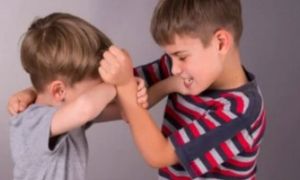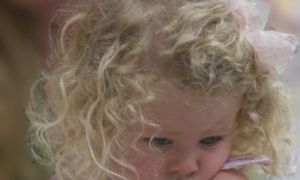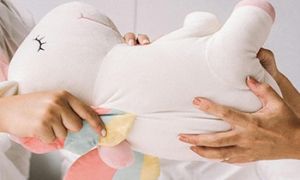

Under the National Quality Framework, it is a requirement to have Early Childhood Teachers (ECT’s) within a centre-based service for preschool children and under.
Workplace Bullying is something that each of us may have experienced at some point of time in our industry. It makes you feel incompetent, it's depressing and you feel worthless. No one should ever make you feel negative, especially at your work! Workplace Bullying is a serious risk to the emotional wellbeing and health of educators and it needs to be prevented and dealt with if it does occur. It's unfortunate but it still exists in early childhood settings!
Parent / Educator meetings help build respectful and positive relationships and enable educators and parents to share information about the child. Meetings add to the casual, daily conversations that you have with families by providing more detailed information about children's achievements and allow time for deep conversation.
With Winter just around the corner, it's important to take precautions to stay healthy during the cold season. It's easy for some of us to fall sick with viral infections especially when it's so easy to catch amongst the children at work. Here are some strategies on how to overcome the winter season, while working.
You have a new child starting in your room, their excited, their parents are happy and the family seems to be settling in well with the centre environment. The first day has come for the child to start, parents say goodbye and then the child starts - screaming, crying, pulling, begging their parent not to leave.
Preschool children have a chance to begin learning a foreign language before they start school under an expanded Early Learning Languages Australia (ELLA) program.
As per National Regulations, an Educational Leader is a suitably qualified and experienced educator, to lead the development and implementation of educational programs in the service. The following article includes information on the Roles and Responsibilities Of An Educational Leader, Supporting Educators, Supporting Continuous Improvement of the Service and more.
Minimum educator-to-child ratios and purposeful for services to highlight the importance of the safety, welfare and wellbeing of children and for Educators to effectively supervise children within the environment.
Conflicts are a common part of relationships and can happen within the workplace. Each and every person has their own thoughts, ideas and perspectives and you can’t expect people to agree with each other all the time. Knowing how to handle a conflict in a positive way provides an opportunity to strengthen your relationships in the workplace.
Welcome to the world of childcare...have you started working at a centre yet? How are you finding it? Or are you thinking of starting a career in childcare? Here is basically an outline of the list of duties you are expected to do while you are working at a childcare centre. Now remember, this is a very general outline and doesn't cover your centers policies & procedures and basic “centre duties” that you will also need to cover as part of your carer duties. The child care duties are normally given based on your level of qualification. The higher your qualification the more duties and responsibilities (endless paperwork) you have. If you are just starting in the childcare industry, your duties will obviously be different as you are still learning the ropes.
 Toddlers have a greater understanding of the world around them by this stage. Their cognitive development (also known as intellectual development and thinking skills) continues… Read More
Toddlers have a greater understanding of the world around them by this stage. Their cognitive development (also known as intellectual development and thinking skills) continues… Read More
 Infants begin to develop trust when parents begin to fulfil their needs. Such as changing an infant's nappy when needed, feeding on request and holding… Read More
Infants begin to develop trust when parents begin to fulfil their needs. Such as changing an infant's nappy when needed, feeding on request and holding… Read More
 Beginning at birth the construction of thought processes, such as memory, problem solving, exploration of objects etc, is an important part of an infant’s cognitive… Read More
Beginning at birth the construction of thought processes, such as memory, problem solving, exploration of objects etc, is an important part of an infant’s cognitive… Read More
 Toddlers want to do more on their own and do not like it when you begin to establish limits on their behaviour. Tantrums can become… Read More
Toddlers want to do more on their own and do not like it when you begin to establish limits on their behaviour. Tantrums can become… Read More
 Your preschooler is now able to focus their attention more accurately and is less influenced by distractions. The intensity of questions increase as your child… Read More
Your preschooler is now able to focus their attention more accurately and is less influenced by distractions. The intensity of questions increase as your child… Read More
 John Dewey is often seen as the proponent of learning by doing – rather than learning by passively receiving. He believed that each child was active,… Read More
John Dewey is often seen as the proponent of learning by doing – rather than learning by passively receiving. He believed that each child was active,… Read More
 Toddler advance and gains new skills in Gross Motor Development milestones achieved throughout earlier years. Co-ordination and challenges that could not be performed before such… Read More
Toddler advance and gains new skills in Gross Motor Development milestones achieved throughout earlier years. Co-ordination and challenges that could not be performed before such… Read More
 Erik Erikson developed a psychosocial theory to understand how we each develop our identities through eight stages of psychosocial development from infancy to adulthood. The… Read More
Erik Erikson developed a psychosocial theory to understand how we each develop our identities through eight stages of psychosocial development from infancy to adulthood. The… Read More
 At this point preschoolers begin to interact effectively with others. Play becomes more innovative and organized and “boyfriend” or “girlfriend” begins to emerge. Preschoolers have… Read More
At this point preschoolers begin to interact effectively with others. Play becomes more innovative and organized and “boyfriend” or “girlfriend” begins to emerge. Preschoolers have… Read More
 From now, babies begin to identify and respond to their own feelings, understanding other's feelings & needs and interact positively with others. A baby's social and… Read More
From now, babies begin to identify and respond to their own feelings, understanding other's feelings & needs and interact positively with others. A baby's social and… Read More

Aggression is a type of behaviour that is triggered by the intention of causing harm...
See more...
Shyness is a feeling and a behaviour towards others. It is a personality trait, an...
See more...
A: These are important situations where early intervention and appropriate strategies can make a significant...
See more...© 2009-2025 Aussie Childcare Network Pty Ltd. All Rights Reserved.

